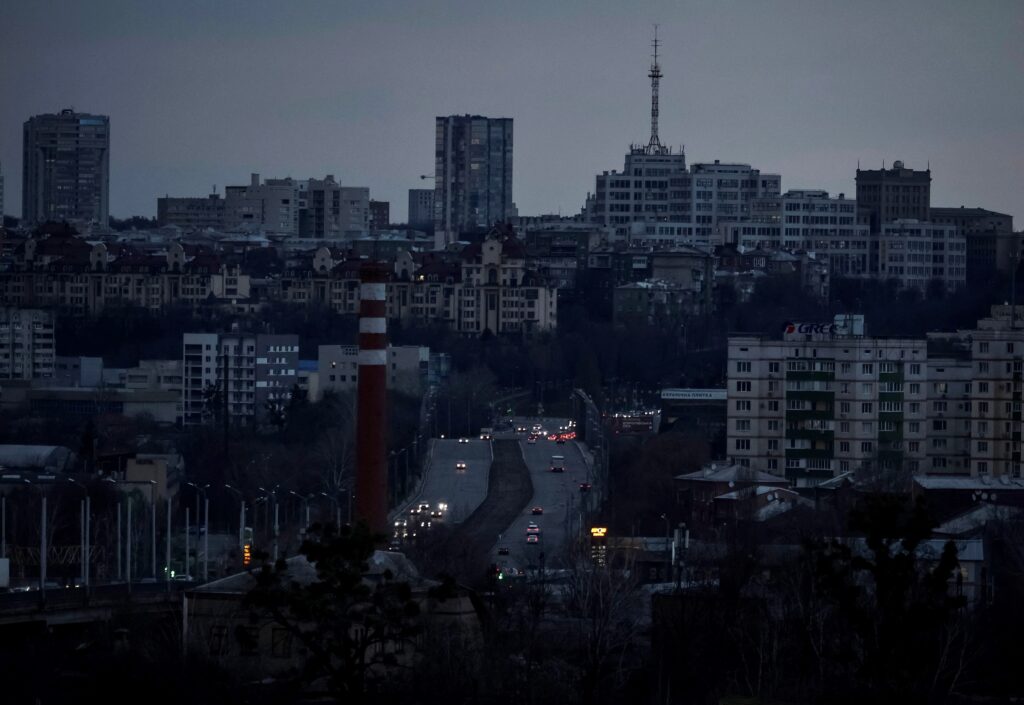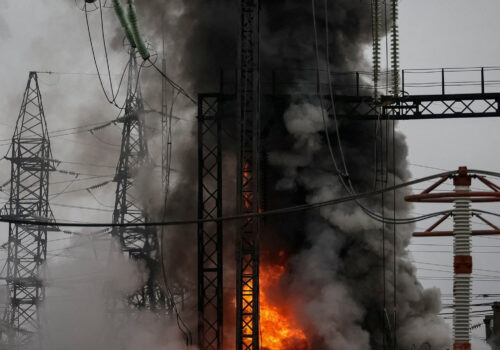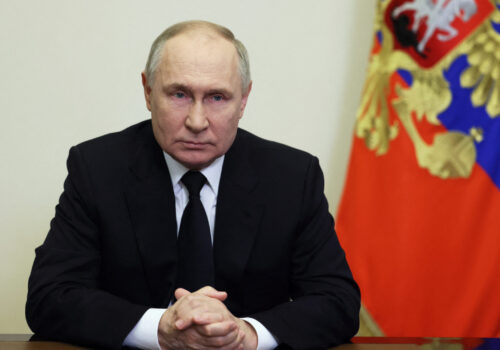In recent weeks, Russia has launched the largest bombing campaign of the war with a series of major overnight attacks targeting Ukraine’s civilian energy infrastructure. This has resulted in comprehensive damage to the Ukrainian power grid and plunged millions into darkness. Unless Ukraine urgently receives additional air defense systems and ammunition from its Western partners, large parts of the country may soon be on the brink of a humanitarian catastrophe.
Russia’s new air offensive began in the second half of March. It has featured a combination of ballistic missiles, cruise missiles, and kamikaze drones, with a wide range of infrastructure objects targeted throughout the entire country. The complex nature of the strikes suggests detailed knowledge of Ukraine’s energy system. In a little over a week, this bombing campaign has succeeded in destroying multiple power plants, damaging a gas storage site, and disabling electricity transmission infrastructure across Ukraine.
In a further indication of Russia’s intention to escalate the air war, a number of Ukraine’s hydroelectric power plants have also been targeted in the latest wave of attacks. This is raising concerns over a potential ecological disaster if dams situated on some of Ukraine’s biggest waterways are breached.
Stay updated
As the world watches the Russian invasion of Ukraine unfold, UkraineAlert delivers the best Atlantic Council expert insight and analysis on Ukraine twice a week directly to your inbox.
While there is no official data for the total damage caused to Ukraine’s civilian energy infrastructure by Russia’s new air offensive, the country’s largest private power provider, DTEK, confirmed on March 30 that it had lost 80 percent of its generating capacity due to the recent wave of attacks.
Much of this damage was to facilities that had only recently been repaired following earlier Russian attacks in 2022 and 2023. “Some of the units that were put into operation two months ago are gone,” commented DTEK executive director Dmytro Sakharuk. “We had rebuilt roofs, installed transformers, repaired turbines and generators. It’s all in ruins now.”
Since March 22, cities across the country including Kharkiv in the east and Odesa in the south have suffered temporary blackouts. Many residents continue to experience sporadic access to electricity. Even in regions where the population has not been disconnected from the grid, Russian attacks have caused significant disruption and forced industrial shutdowns.
With at least 2GW of capacity damaged or destroyed across the country, Ukraine is now looking to maximize electricity imports from EU neighbors. Prior to the recent escalation in Russian bombing, Ukraine needed to use around 0.5GW of cross-border capacity to import energy from EU countries. This has now tripled to 1.5GW, which is close to the maximum technical capacity of 1.7GW provided by existing interconnection lines.
The cost of fixing the damage caused by the most recent wave of Russian attacks will be high. This is expected to significantly increase earlier World Bank estimates that already placed Ukraine’s wartime civilian infrastructure repair bill at over $135 billion. DTEK alone may have to find an additional $200 million to rebuild facilities. Understandably, some are questioning whether it currently makes sense to invest such large sums in another round of repairs given the potential for fresh Russian airstrikes.
Eurasia Center events

Ever since the start of the full-scale invasion a little over two years ago, Russia has deliberately targeted Ukraine’s civilian energy infrastructure. By doing so, the Kremlin hopes to disrupt economic activity, break the Ukrainian population’s will to resist, and force millions of civilians to flee their homes.
These efforts have so far proved unsuccessful. Ukraine’s resilience is in large part due to the courage and ingenuity of the country’s engineers, who have repeatedly exposed themselves to the dangers of missile and drone strikes in order to repair power plants, substations, generators, and distribution lines.
The herculean efforts of Ukraine’s energy sector workers cannot be expected to continue indefinitely, however. This is especially true in the current circumstances, when recently repaired infrastructure is once again being targeted and destroyed by Russian airstrikes.
The only long-term solution to the threat posed by Russian bombardment is enhanced air defenses. Ukrainian officials including President Zelenskyy have been vocal in recent days in their calls for the country’s partners to urgently deliver new air defense systems and fresh interceptor missiles.
The current deadlock in the US Congress over a major new Ukrainian aid bill has raised serious doubts over the future of Western military support for Ukraine. With supplies now running low, Ukraine is already finding itself forced to ration ammunition on the front lines and in defense of its cities. This is emboldening Russia, and may have been a contributing factor behind the current surge in aerial attacks.
If Ukraine’s air defenses are further depleted, there can be no serious doubt that Russia will seek to destroy the country’s civilian energy infrastructure entirely. This would leave tens of millions of Ukrainians without access to basic amenities such as electricity, heating, water, and internet. The stage would be set for a vast humanitarian crisis that would have grave consequences for the war itself and for the whole of Central Europe, with an unprecedented wave of migrants likely to enter the EU from Ukraine.
The International Criminal Court in The Hague has already issued arrest warrants for two Russian military commanders in connection with earlier Russian attacks on Ukraine’s civilian energy infrastructure. While Russia alone bears responsibility for these war crimes, the West’s continued failure to supply Ukraine with adequate air defenses makes them complicit in the unfolding humanitarian crisis.
Dr. Aura Sabadus is a senior energy journalist who writes about Eastern Europe, Turkey, and Ukraine for Independent Commodity Intelligence Services (ICIS), a London-based global energy and petrochemicals news and market data provider. Her views are her own.
Further reading
The views expressed in UkraineAlert are solely those of the authors and do not necessarily reflect the views of the Atlantic Council, its staff, or its supporters.

The Eurasia Center’s mission is to enhance transatlantic cooperation in promoting stability, democratic values and prosperity in Eurasia, from Eastern Europe and Turkey in the West to the Caucasus, Russia and Central Asia in the East.
Follow us on social media
and support our work
Image: Kharkiv without electricity after critical civil infrastructure was hit by Russian missile attacks. March 26, 2024. REUTERS/Vyacheslav Madiyevskyy




